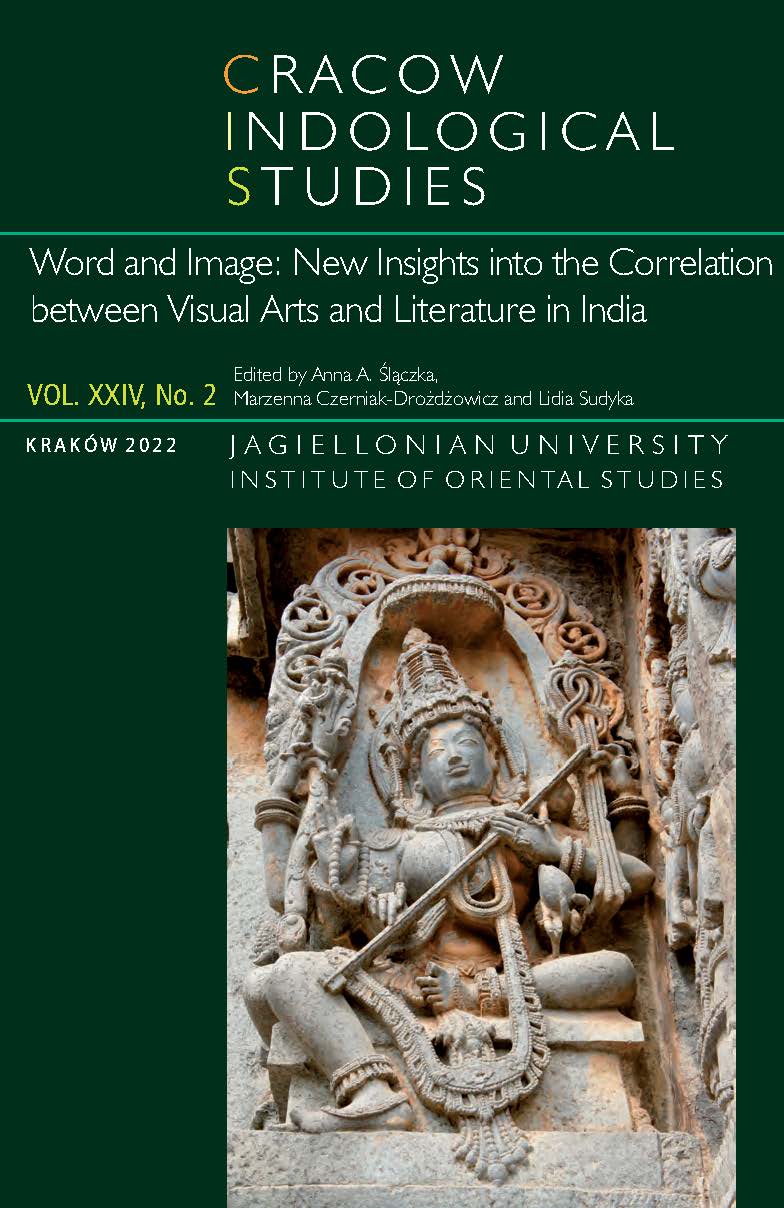About Visual Language, Drunken Women, Jesters and Escaping the World
About Visual Language, Drunken Women, Jesters and Escaping the World
Author(s): Monika ZinSubject(s): Language and Literature Studies, Fine Arts / Performing Arts
Published by: KSIĘGARNIA AKADEMICKA Sp. z o.o.
Keywords: Mathura; Andhra; Ajanta; vidūṣaka; courtesan; Nāṭyaśāstra; Mṛcchakaṭikā; Kāmasūtra
Summary/Abstract: Visual communication employs language different than literature. The economy of viewing calls for elements of representation familiar to the viewer, which, when shown in a recurring order, become comprehensible. For us, recognising these elements is often difficult as they can be entirely absent from the literary text. The person of the jester, whose appearance corresponds to the vidūṣaka of the Nāṭyaśāstra, is found frequently in narrative scenes depicted through visual means. His presence often indicates that another figure in the picture is about to withdraw from worldly life. The jester then expresses utter disapproval of his master’s decision. The viewer is able to recognise the meaning of the scene because the jester is shown also in erotic and humorous scenes, perhaps representative of the sensual atmosphere of theatre life, or related to the nāyaka and the vidūṣaka of the Kāmasūtra.
Journal: Cracow Indological Studies
- Issue Year: 24/2022
- Issue No: 2
- Page Range: 91-116
- Page Count: 26
- Language: English

